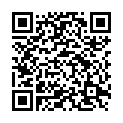|
|
|
| Module code: MEB_24_M_5.17.AUM |
|
|
3V+1P (4 hours per week) |
|
5 |
| Semester: 5 |
| Mandatory course: yes |
Language of instruction:
English |
Required academic prerequisites (ASPO):
Lab participation and lab report |
Assessment:
written exam 120 min (grade)
[updated 15.01.2024]
|
MEB_24_M_5.17.AUM (P241-0437, P241-0438) Mechanical Engineering, Bachelor, SO 01.10.2024
, semester 5, mandatory course
|
60 class hours (= 45 clock hours) over a 15-week period.
The total student study time is 150 hours (equivalent to 5 ECTS credits).
There are therefore 105 hours available for class preparation and follow-up work and exam preparation.
|
Recommended prerequisites (modules):
None.
|
Recommended as prerequisite for:
|
Module coordinator:
N.N. |
Lecturer: N.N.
[updated 10.10.2023]
|
Learning outcomes:
After successfully completing this course, students will be able to handle, use and apply programmable logic controllers, as well as system-theoretical methods for solving practice-oriented control and regulation tasks in the field of mechanical engineering. They will be able to select controllers and their settings in a practice-oriented manner. Students will be familiar with the problems involved in selecting and setting control loops. Introduction of modern tools for problem solving, modeling and simulating automation tasks.
Students will improve their subject-related technical English skills. Students will know the subject-specific English terms.
[updated 28.02.2025]
|
Module content:
Boolean algebra and switching functions
Implementing switching functions and their simplification
Sequential control systems
Design and functionality of control systems
Introduction to control eingineering
Transfer functions
The static and dynamic behavior of control loops
Control loop elements and system behavior
PID controllers and derivable types
Tuning rules, optimization, experimental analysis
Modified control loop structures
Stability considerations
Introduction to simulation tools for control loop design
[updated 15.01.2024]
|
Teaching methods/Media:
Lecture with integrated exercises, lab experiments in small groups
[updated 15.01.2024]
|
Recommended or required reading:
Lutz/Wendt: Taschenbuch der Regelungstechnik, Schneider: Praktische Regelungstechnik, Wellenreuther/Zastrow: Automatisieren mit SPS - Theorie und Praxis
[updated 15.01.2024]
|

